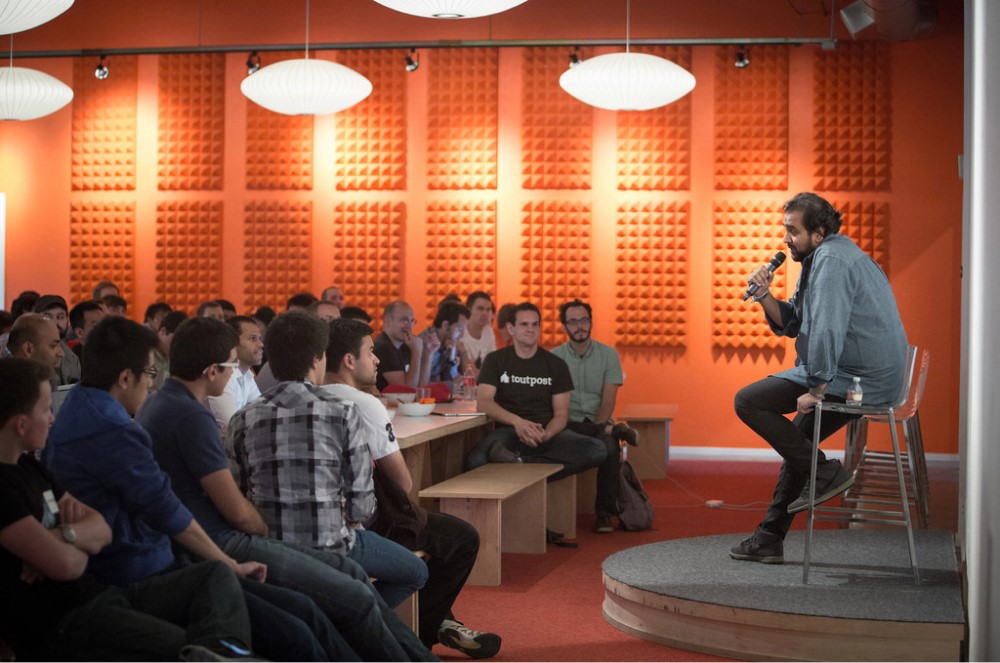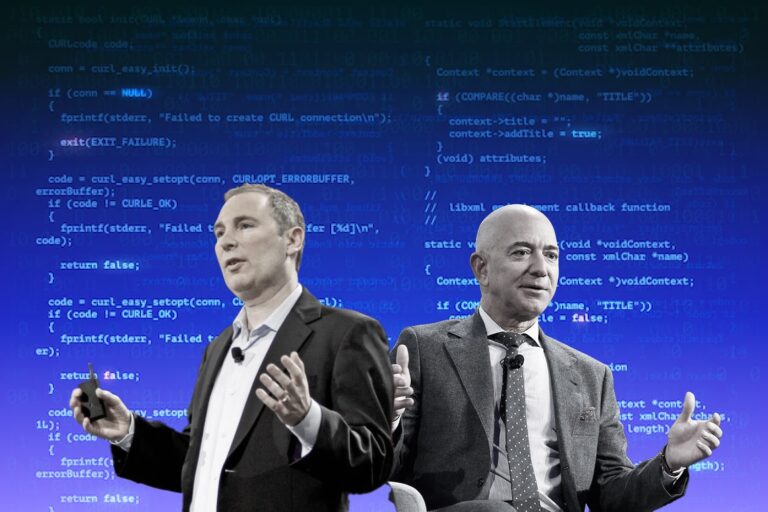“Is Y Combinator Worth it?” – Crystal-Clear Insights Revealed!

Considered the world’s best startup accelerator, Y Combinator – often referred to as YC – stands as the strong aspiration of several fledgling startups. Actually, tech giants like Airbnb, Stripe, Dropbox, together with many other big startups have come out of their ecosystem. For some founders, YC is kind of like the Harvard of startup accelerators. “Basically, once we got into Y Combinator, everything changed for our business.”
“Is Y Combinator worth it?” This appears to be the most common question that almost all entrepreneurs considering joining YC will concern about – and this is also a difficult one to answer concisely given the complexity of such a program. You can ask two totally different YC alumni that question and get two totally different answers, even if they both attended the same batch. This sounds a little bit funny but is totally true!
So, which makes the differences amongst the founders’ experiences and success after attending YC? Whether going for this prestigious Bay Area seed accelerator is specifically the right thing for you and your businesses? Let’s go explore to figure out your own answer!
Y Combinator: How It Works?
The very first question is what Y Combinator is?
To put it simply, Y Combinator is the world-renowned accelerator that provides early-stage startups seed investment and advice in Silicon Valley. In general, it aims to provide seed funding – the earliest stage of venture funding – for potential startups. Theoretically, should you become a part of the YC network, it will pay your startup expenses while you’re getting started. In practice, some companies may need no more than seed funding. And many others have to go through several rounds. There is no right answer – and how much funding you need likely depends on the kind of company you start.
At Y Combinator, the primary goal is to pave the way for start-up founders and let them through the first phase. This usually means: get you to the point where you successfully have built something impressive enough to raise money on a larger scale – at which point, YC will introduce you to later stage investors—or occasionally even acquirers.
“We spend much more time teaching founders how to pitch their startups to investors, and how to close a deal once they’ve generated interest. In the second phase we supply not just advice but protection; potential investors are more likely to treat you well if you come from YC because how they treat you determines whether in the future we’ll steer deals toward or away from them,” claimed by Y Combinator’s representatives.
Despite being based in Northern California, Y Combinator is by no means a program only for Silicon Valley startups and entrepreneurs. In reality, such a program has long begun to invest more heavily in its international footprint and attracting a more geographically diverse pool of companies, focusing on emerging markets such as India and Latin America. Particularly, in the Summer 2019 batch, 27 countries were represented, and 38% of 175 companies presented were based outside of the U.S. with India alone representing 12 companies in the batch.

Furthermore, Y Combinator has recently extended the scope of services it provides on top of its core 3-month seed accelerator program, from continuing education and programming for startups outside of the seed stage to publicly available resources such as the Startup School online course. Since the services and support offered by YC have grown beyond the traditional capital-for-equity model, so has the size of each batch of companies. For instance, Y Combinator’s Summer 2019 batch, which run from June-August, included staggeringly 196 companies divided into four large groups. These groups featured a mix of repeat-founders and first-time founders, and companies that ranged from a few weeks old to a few years old.
When it comes to the application procedure for YC, there are two batches per year – one from January through March and one from June through August – when YC considers investment for early-stage startups.
First of all, there will be an application form for international founders to fill out. Then, the most promising groups will be invited to meet YC staff – either in person or via remote communications means, depending on the specific context, such as with health and travel considerations due to the past COVID-19. The funding decisions will be made immediately afterward.
Should you become the official attendee, you shall join the YC program, which typically lasts for three months. During those three months, all start-up founders participate in group office hours every two weeks and can meet with partners for office hours as often as needed.
During the batch, YC also host a weekly talk, where they invite an expert in some aspect of startups to speak. Typically, speakers include startup founders, venture capitalists, and executives from well-known technology companies. About ten weeks in, Demo Day takes place – this is where all the startups can present their products and services to a specially selected audience of investors and press.

Actually, Y Combinator is occasionally described as a “boot camp” – yet, this seems not really accurate. Whereas they do fund a whole number of startups at once, and most have to move to participate, the atmosphere at YC is the opposite of regimented. In fact, funding startups in batches is expected to work better for everyone. Not only is it more efficient for the YC themselves, but this has also been much better for the startups, who probably end up helping one another at least as much as how they are helped.
One fascinating point to take into account is that since this Silicon Valley-based incubator funds such large numbers of startups, Y Combinator has established a huge alumni network, and there’s a strong ethos of helping out fellow YC founders. Thus, whatever your problem – whether you need beta testers, a place to stay in another city, advice about a browser bug, or even a connection to a particular company, you stand the strong chances of obtaining precious help from someone in the network.

Y Combinator: Why It Is Dominating the World of Startups?
What’s the secret behind Y Combinator’s success? How did it so quickly become arguably the center of the entrepreneurial universe? Understandably, when considering an incubator or accelerator, every single business owner will question the real gains they receive after that: What will happen then and what benefits can I secure?
And actually, Y Combinator can give convincing answers to these questions, which makes it mighty heaven for all founders and also the number one player within the game of attracting potential startups. So, let’s see what this is!
#1. Wider Access to Immense Capital Pools
According to Henrik Zillmer, founder of one of the hottest Y-combinator startups in the world, AirHelp, a startup founder can double or even triple the valuation of their company after entering the program as an incredible amount of risk-willing capital is waiting to invest in Y-combinator startups.
Notably, there exist approximately 500 to 1,000 high-performing investors waiting on YC’s Demo Day to invest in every new batch of Y-combinator startups. As several international founders noted, on a practical level, the diligence and fundraising cycles in the U.S. are much faster than in other countries, and having such a large number of investors assembled in one place at the same time for Demo Day optimizes the fundraising process.
In the case of Jarrett Streebin, a Y Combinator alumnus and also the founder and CEO of EasyPost, a San Francisco-based startup with a simple shipping API, being accepted into Y Combinator does make a difference to him, at least when it comes to funding efforts.

Whereas it almost sounds too good to be true, there is always some sort of “catch”: accepted startups may probably obtain $125,000 to $150,000 for a 7 % stake of the company. That’s the deal – yet then again, should founders can double or triple their startups’ otherwise expected valuation, those 7 % emerges as a very small portion suddenly.
#2. The Community of High-Performing Entrepreneurs as Well as Like-Minded Peers
From many YC-backed founders’ experiences, the Y Combinator alumni and investor network stands as the most valuable asset the program provides. The value of this network is demonstrated not only through fundraising, but through a willingness to make introductions, and shared knowledge of the pitfalls of starting up.
Furthermore, from the perspective of some founders like Emerson Hsieh and his brother Morris – co-founders of Waves, a dating app that matches users based on sexual compatibility, being surrounded by others like them did make the difference. “The founder journey is a long and lonely journey and because we’re young, it’s so great to find others doing the same thing. This value isn’t emphasized enough,” explained the Hsieh brothers explained.
As regards the network of YC alumni, you can also get tons of precious feedback from these high-performing alumni of founders by – for instance, sending out beta-versions of your new products or iterations. Additionally, there is every possibility that several alumni companies within this network can become your clients and you may even end up partnering up with some of them which can both help improve your product/service and boost your sales significantly. To cast a glimpse over the entire alumni of Y Combinator companies, you can check out here.

Another notable point to consider is that Y Combinator primarily, though not solely, invest in companies that focus on or wish to enter the American market. So, should the American market be one of the next steps for your business, then Y Combinator is going to be your seamless match!
#3. Free Publicity of Being “YC-Backed”
When one company in YC does well, the whole community benefits. Since it has such a strong track record, early adopters, investors and press are often more willing to take a look at YC founders, even if they’re first time founders.
As a matter of fact, not only are investors waiting to gain access to the several new promising Y Combinator startups, the media does, too. Thus, if you wish to enter and ignite your presence particularly in the American market, Y-combinator will be your way to lots of free publicity. AirHelp has, for instance, been featured in both The Wall Street Journal, TechCrunch, and even Fox News among many other news outlets.

Y Combinator: Possible Downside from the Insider
In the case of Martin Kleppman, a co-founder of Rapportive, a cool startup that adds social profiles of the people who email you to your Gmail, his experiences with Y Combinator were not very enjoyable. First looking over the background, Rapportive was launched in March 2010, and Martin Kleppman along with his co-founder joined Y Combinator for the Summer 2010 batch from June to August. Whereas it was fantastic to have users and solid growth, they claimed that it was actually a very frustrating time for them as a team.
To be more concise, they found out the downside of having launched product, namely that they ended up spending the entire 3 months of Y Combinator (and probably another month either side) doing the following:
- Answering many, many support emails and tweets
- Raising their seed round
- Stopping their infrastructure from collapsing under our user growth
- Responding to press and bloggers
- Reading resumés and interviewing job candidates
- Fixing gnarly bugs in production
- Applying for visas, so that we could work in the US
- Attending YC dinners and office hours
By contrast, the ideal world of Y Combinator involves spending 3 months:
- Moving your product forward
- Attending YC dinners and office hours
The gist is basically here: when Rapportive entered Y Combinator, they already had a live product. The majority of startups who join Y Combinator have a demo at most; thus, all the startups are focusing together on building their product, which creates more camaraderie and shared insights.
In the meantime, at that stage, Rapportive was, most of the time, about fixing bugs and responding to user queries, which actually put them out of step with the other startups, making the whole experience much less enjoyable for them.

“Our product development was almost stalled for months on end. And all the while, our YC batchmates were demoing new features every week, and getting a massive high from the productive flow of developing their products at a rapid pace.” Martin Kleppman continued. “… I am perhaps a bit envious of those who could move ahead rapidly and build their product without having to worry about supporting users or keeping their database alive.”
Whereas Kleppman does credit Y Combinator with giving dedicated and being a great program, he gently leaves a warning: Should your startup already have a launched product, experience with Y Combinator is still great, but you’re going to enjoy it less.
The Bottom Line
Regarded as the ultimate validation for early-stage startups, Y Combinator has long established its name as the world-renowned accelerator. Given a plethora of positive gains after “being accepted” for the program, there exist some downsides that startup founders should put into perspective. Before arriving at whether to go for this startup “Harvard” or not, it’s a “must” to clearly define your needs and watch over YC programs’ pros and cons.







